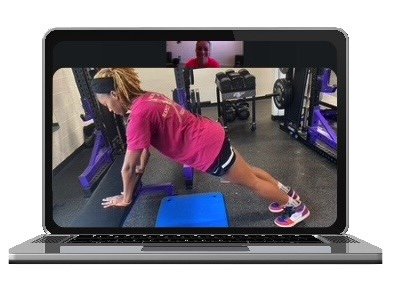Postpartum Nutrition Survival Tips - Stay Connected

-
Get comfortable listening to your appetite.
Our dieting culture tells us that our appetites are wrong and that hunger is something that needs to be managed and controlled. It’s actually quite the contrary! Hunger is a biological cue that helps you understand how much food you need and when - just like your impulse to breathe or urinate. If you are someone who has dieted in the past, you are probably not used to listening and responding to your body’s hunger and fullness cues. You can start with with awareness. Notice when hunger pops up, how strong or dull it is and what your mind says about it. Take note of how different foods impact your hunger, fullness and pleasure of the meal. This can give you a lot of helpful information about your body and its needs - especially during this unique time while it’s working to heal from childbirth, produce milk and keep you functioning at a reasonable level despite severe sleep deprivation. All of those needs are communicated via high levels of hunger and that might be surprising or unnerving (again, especially if you were told hunger was sort of a bad thing in the past). The best thing you can do when your hunger spikes is to pay attention to it and respond with adequate food - usually a combination of carbohydrates, protein and fat. Regardless of your eating patterns in the past, you may want to consider eating consistent meals and snacks throughout the day - usually 3 meals and 2-3 snacks.
-
Have food readily available so you can respond to your appetite in a timely manner.
There will be many times where you’ll be stuck on the couch holding or feeding your baby when hunger spikes. If you’re a new mom, you might be thinking that you’ll simply put your baby down and make yourself a nice lunch. Just trust me on this one, it’s probably not going to happen as easily as you think. It’s weird to imagine but, between your physical healing and a needy newborn, making and eating lunch can feel like quite the task. You also might become so busy that food slips your mind and, when you finally tune-in, you’re ravenous - setting you up for feeling out of control with food. The ideal postpartum meal is nutritionally dense, can be eaten with one hand, tastes yummy and was made by someone else. Think burritos, pitas and sandwiches packed with things like beans, lentils, avocado, nuts, meat, poultry, cheese, quinoa, and veggies - not necessarily all at once but if you have a recipe that includes them all, please share! In the early days post-birth, you might get a lot of meals delivered to your home by family and friends. If you can’t keep up, try freezing some of them for weeks/months down the road. Always keep food like bars, fruit, trail mix and crackers nearby for snacks.
-
Avoid focusing on your weight.
Every woman’s postpartum weight loss will look different and it often won’t align with expectations. I recommend shifting the focus from postpartum weight loss to postpartum healing. Check in regularly to see how you’re healing physically, emotionally and spiritually - those are indicators of wellness - not some number on the scale that is largely unreliable and is not indicative of healing or health. Of course, throughout your postpartum experience, your weight will more or less trend down over time. You may stand in front of the mirror in awe of your body and its incredible transformation from pregnancy to postpartum or you might stare in horror wondering who is looking back at you. That unfamiliar feeling might also be felt in the context of your changed identity, your home/work roles, internal emotional experiences, family life, relationships and much more. I want you to know that you’re entitled to feel however you feel about your postpartum body-whether that be positive or negative. Of course, I’m in the body positive camp and I dream of a day when all of us can have a healthy body image. I also realize that if we experience negative body image, and feel shameful about that, we are a lot more likely to keep it to ourselves, go to great lengths to change our bodies and ultimately suffer in silence. Finding someone to talk to who you trust and has a healthy body image can be helpful. Just be careful not fall into a conversation of body bashing! Remember that a shift in body image, while it may have something to do with how you look, can also be symbolic for other things going on. If your body image is distracting and causing you to consistently feel bad in your body or about yourself, I encourage you to reach out for support from a therapist who specializes in postpartum. You might also want to consider a dietitian with experience in intuitive eating, mindfulness and body image.





















We, Jaime and Sheeva, are fertility specialists who work and live in New York City. For a full run-down of education and articles written, click here. Our practice is devoted to helping women achieve their goal of parenthood. Using a team approach (two minds are always better than one) rooted in honesty and transparency, we are... Read More